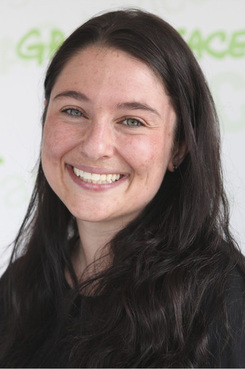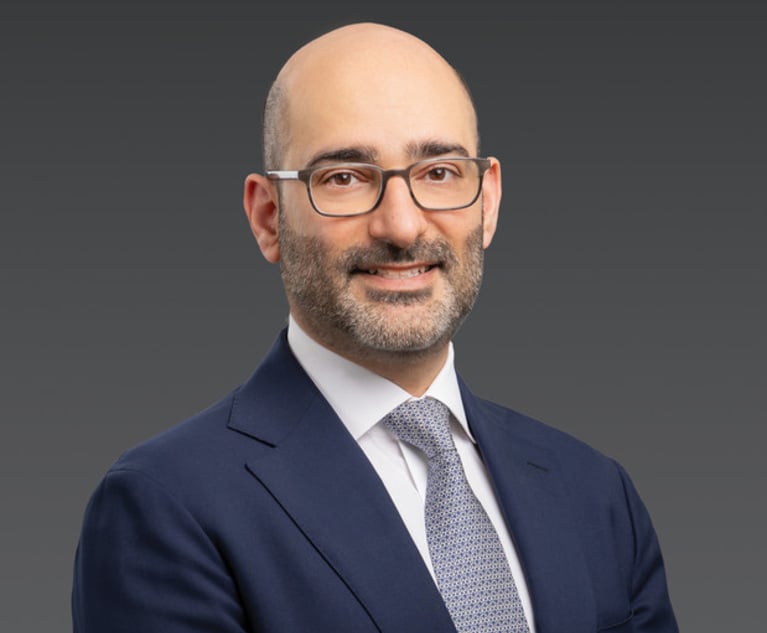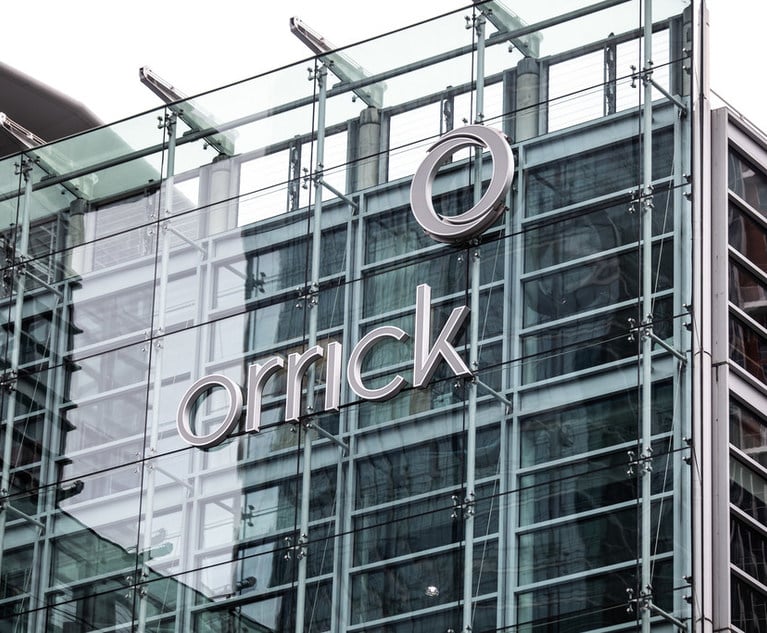Some See Career Conundrum in Law Firms' Energy Work
With growing awareness of the threat of climate change, law professors said environmentally minded students are paying close attention to the fossil-fuel matters being handled by potential Big Law employers.
July 12, 2018 at 02:11 PM
4 minute read
 Image: Fotolia Naomi Ages was happy to land at Gibson, Dunn & Crutcher in New York after graduating from law school at the University of Southern California in 2010. The global financial crisis was still roiling the legal industry, and while some classmates saw their start dates deferred, she was able to start right on schedule at the firm where she worked as a summer associate. And while Ages went to law school with a goal to pursue public interest work, she wanted to return to the East Coast, and nonprofits and NGOs had few resources for cross-country recruiting. It was only after she started looking for a job outside of Big Law, specifically in the area of environmental advocacy, that she realized her time at the firm might pose a challenge. While Ages ultimately landed a position as a legal adviser with Greenpeace International, her job search took her two years. She suspects the firm's high-profile work successfully defending Chevron Corp. against multibillion-dollar pollution claims in Ecuador might have played a part in the delay.
Image: Fotolia Naomi Ages was happy to land at Gibson, Dunn & Crutcher in New York after graduating from law school at the University of Southern California in 2010. The global financial crisis was still roiling the legal industry, and while some classmates saw their start dates deferred, she was able to start right on schedule at the firm where she worked as a summer associate. And while Ages went to law school with a goal to pursue public interest work, she wanted to return to the East Coast, and nonprofits and NGOs had few resources for cross-country recruiting. It was only after she started looking for a job outside of Big Law, specifically in the area of environmental advocacy, that she realized her time at the firm might pose a challenge. While Ages ultimately landed a position as a legal adviser with Greenpeace International, her job search took her two years. She suspects the firm's high-profile work successfully defending Chevron Corp. against multibillion-dollar pollution claims in Ecuador might have played a part in the delay.  Naomi Ages. “My best guess is that there was some skepticism. Doing a quick Google search would have revealed a lot,” she said. “But I don't know if that's specific to Gibson Dunn or any law firm.” Some law school professors are concerned enough about the potential stigma that they are advising environmentally conscious students to weigh the consequences of a career stop at firms with a heavy roster of fossil fuel clients. Potential recruits, meanwhile, may be put off by certain firms' aggressive tactics on behalf of their energy clients. Not Tobacco In spite of scientific predictions that climate change driven by human activity is likely to send global temperatures upwards by several degrees by the end of the century, survey data presents mixed messages over how salient the issue is for millennials. "Energy work broadly defined, including representation of utilities and even major oil and natural gas companies, has not yet seemed to trigger that same reaction in students looking for private sector employment in the Big Law firms, which frequently have a very wide client base that include that industry among many others," he said in an email. Hunton & Williams Students do tend to identify coal more specifically as antithetical to their personal concerns with climate and sustainability and do seem to shy away from firms with significant practices representing the coal industry, or at least seek assurances they can avoid those clients," Lazarus said. They realize that if an energy company is a big client of the firm, it's going to be much harder to do a thing that could be perceived as a business conflict, let alone a true legal conflict that involves adverse position," Sivas said. continuing New Generation It was just really interesting the number of students who are saying, 'I don't have a big environmental background, but I can't believe what [Ryan] Zinke, [Scott] Pruitt and [Donald] Trump are doing," she said. Aggressive Advocacy Kasowitz Torres Benson sing law firms to silence protest. It's a really troubling trend," she said. "Had I been working in Big Law, it would have been disturbing." Paul, Weiss, Rifkind, Wharton & Garrison The new, more aggressive, litigation tactics are off-putting to many current students," Lazarus said, specifically pointing to attacks on state AGs and environmentalists over their suits against industry. A Call to the Bar Pepper Hamilton "I'm concerned that law firms could be induced in the pursuit of their own economic interest to take positions that are inimical to human society," he said.
Naomi Ages. “My best guess is that there was some skepticism. Doing a quick Google search would have revealed a lot,” she said. “But I don't know if that's specific to Gibson Dunn or any law firm.” Some law school professors are concerned enough about the potential stigma that they are advising environmentally conscious students to weigh the consequences of a career stop at firms with a heavy roster of fossil fuel clients. Potential recruits, meanwhile, may be put off by certain firms' aggressive tactics on behalf of their energy clients. Not Tobacco In spite of scientific predictions that climate change driven by human activity is likely to send global temperatures upwards by several degrees by the end of the century, survey data presents mixed messages over how salient the issue is for millennials. "Energy work broadly defined, including representation of utilities and even major oil and natural gas companies, has not yet seemed to trigger that same reaction in students looking for private sector employment in the Big Law firms, which frequently have a very wide client base that include that industry among many others," he said in an email. Hunton & Williams Students do tend to identify coal more specifically as antithetical to their personal concerns with climate and sustainability and do seem to shy away from firms with significant practices representing the coal industry, or at least seek assurances they can avoid those clients," Lazarus said. They realize that if an energy company is a big client of the firm, it's going to be much harder to do a thing that could be perceived as a business conflict, let alone a true legal conflict that involves adverse position," Sivas said. continuing New Generation It was just really interesting the number of students who are saying, 'I don't have a big environmental background, but I can't believe what [Ryan] Zinke, [Scott] Pruitt and [Donald] Trump are doing," she said. Aggressive Advocacy Kasowitz Torres Benson sing law firms to silence protest. It's a really troubling trend," she said. "Had I been working in Big Law, it would have been disturbing." Paul, Weiss, Rifkind, Wharton & Garrison The new, more aggressive, litigation tactics are off-putting to many current students," Lazarus said, specifically pointing to attacks on state AGs and environmentalists over their suits against industry. A Call to the Bar Pepper Hamilton "I'm concerned that law firms could be induced in the pursuit of their own economic interest to take positions that are inimical to human society," he said. This content has been archived. It is available through our partners, LexisNexis® and Bloomberg Law.
To view this content, please continue to their sites.
Not a Lexis Subscriber?
Subscribe Now
Not a Bloomberg Law Subscriber?
Subscribe Now
NOT FOR REPRINT
© 2025 ALM Global, LLC, All Rights Reserved. Request academic re-use from www.copyright.com. All other uses, submit a request to [email protected]. For more information visit Asset & Logo Licensing.
You Might Like
View All
Milbank’s Revenue and Profits Surge Following Demand Increases Across the Board
4 minute read
Fourth Quarter Growth in Demand and Worked Rates Coincided with Countercyclical Dip, New Report Indicates

'Translate Across Disciplines': Paul Hastings’ New Tech Transactions Leader

Orrick Picks Up 13-Lawyer Tech, VC Group From Gunderson Dettmer
Trending Stories
- 1Eliminating Judicial Exceptions: The Promise of the Patent Eligibility Restoration Act
- 2AI in Legal: Disruptive Potential and Practical Realities
- 3One Court’s Opinion on Successfully Bankruptcy Proofing a Borrower
- 4Making the Case for Workflow Automation
- 5Copyright Infringement by Generative AI Tools Under US and UK Law: Common Threads and Contrasting Approaches
Who Got The Work
J. Brugh Lower of Gibbons has entered an appearance for industrial equipment supplier Devco Corporation in a pending trademark infringement lawsuit. The suit, accusing the defendant of selling knock-off Graco products, was filed Dec. 18 in New Jersey District Court by Rivkin Radler on behalf of Graco Inc. and Graco Minnesota. The case, assigned to U.S. District Judge Zahid N. Quraishi, is 3:24-cv-11294, Graco Inc. et al v. Devco Corporation.
Who Got The Work
Rebecca Maller-Stein and Kent A. Yalowitz of Arnold & Porter Kaye Scholer have entered their appearances for Hanaco Venture Capital and its executives, Lior Prosor and David Frankel, in a pending securities lawsuit. The action, filed on Dec. 24 in New York Southern District Court by Zell, Aron & Co. on behalf of Goldeneye Advisors, accuses the defendants of negligently and fraudulently managing the plaintiff's $1 million investment. The case, assigned to U.S. District Judge Vernon S. Broderick, is 1:24-cv-09918, Goldeneye Advisors, LLC v. Hanaco Venture Capital, Ltd. et al.
Who Got The Work
Attorneys from A&O Shearman has stepped in as defense counsel for Toronto-Dominion Bank and other defendants in a pending securities class action. The suit, filed Dec. 11 in New York Southern District Court by Bleichmar Fonti & Auld, accuses the defendants of concealing the bank's 'pervasive' deficiencies in regards to its compliance with the Bank Secrecy Act and the quality of its anti-money laundering controls. The case, assigned to U.S. District Judge Arun Subramanian, is 1:24-cv-09445, Gonzalez v. The Toronto-Dominion Bank et al.
Who Got The Work
Crown Castle International, a Pennsylvania company providing shared communications infrastructure, has turned to Luke D. Wolf of Gordon Rees Scully Mansukhani to fend off a pending breach-of-contract lawsuit. The court action, filed Nov. 25 in Michigan Eastern District Court by Hooper Hathaway PC on behalf of The Town Residences LLC, accuses Crown Castle of failing to transfer approximately $30,000 in utility payments from T-Mobile in breach of a roof-top lease and assignment agreement. The case, assigned to U.S. District Judge Susan K. Declercq, is 2:24-cv-13131, The Town Residences LLC v. T-Mobile US, Inc. et al.
Who Got The Work
Wilfred P. Coronato and Daniel M. Schwartz of McCarter & English have stepped in as defense counsel to Electrolux Home Products Inc. in a pending product liability lawsuit. The court action, filed Nov. 26 in New York Eastern District Court by Poulos Lopiccolo PC and Nagel Rice LLP on behalf of David Stern, alleges that the defendant's refrigerators’ drawers and shelving repeatedly break and fall apart within months after purchase. The case, assigned to U.S. District Judge Joan M. Azrack, is 2:24-cv-08204, Stern v. Electrolux Home Products, Inc.
Featured Firms
Law Offices of Gary Martin Hays & Associates, P.C.
(470) 294-1674
Law Offices of Mark E. Salomone
(857) 444-6468
Smith & Hassler
(713) 739-1250










